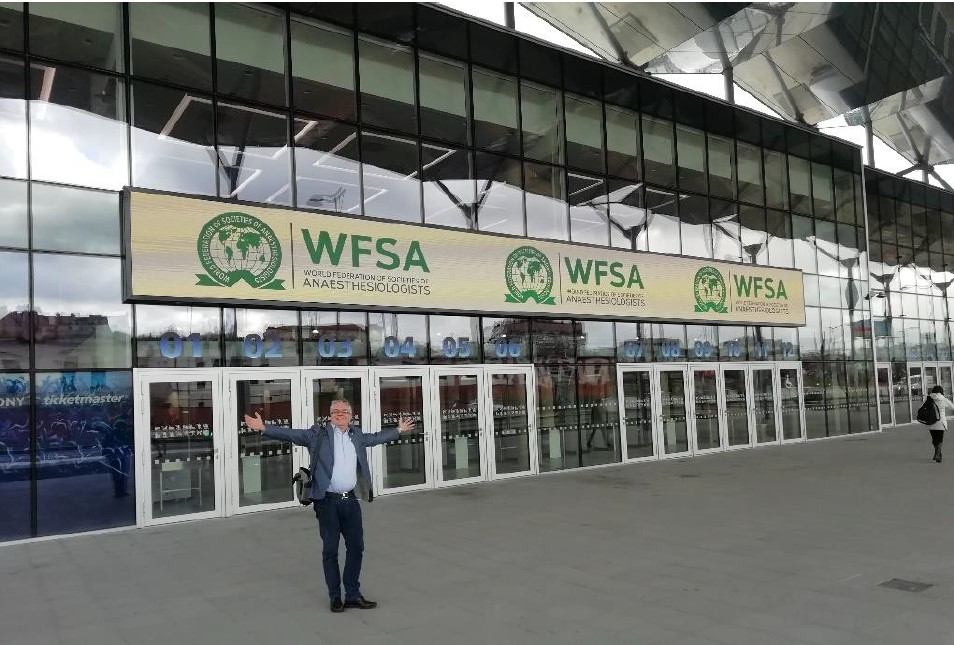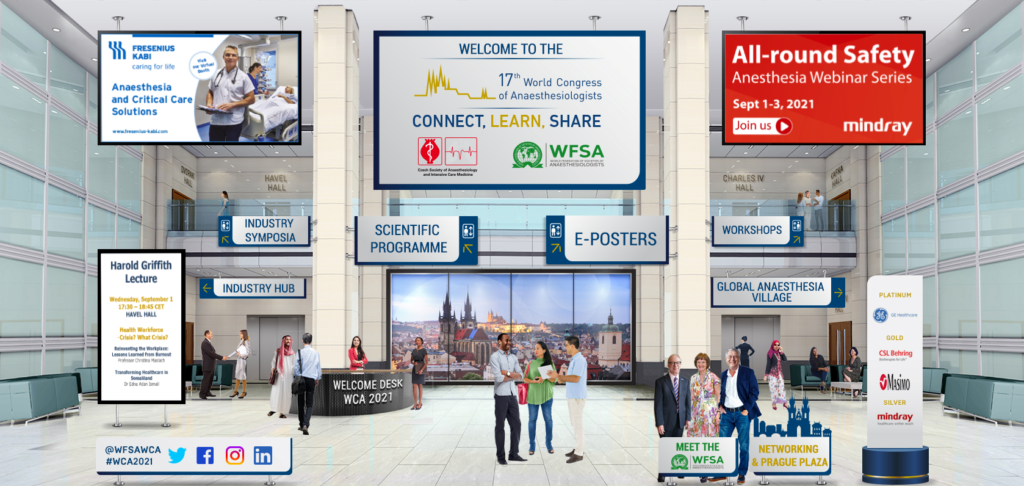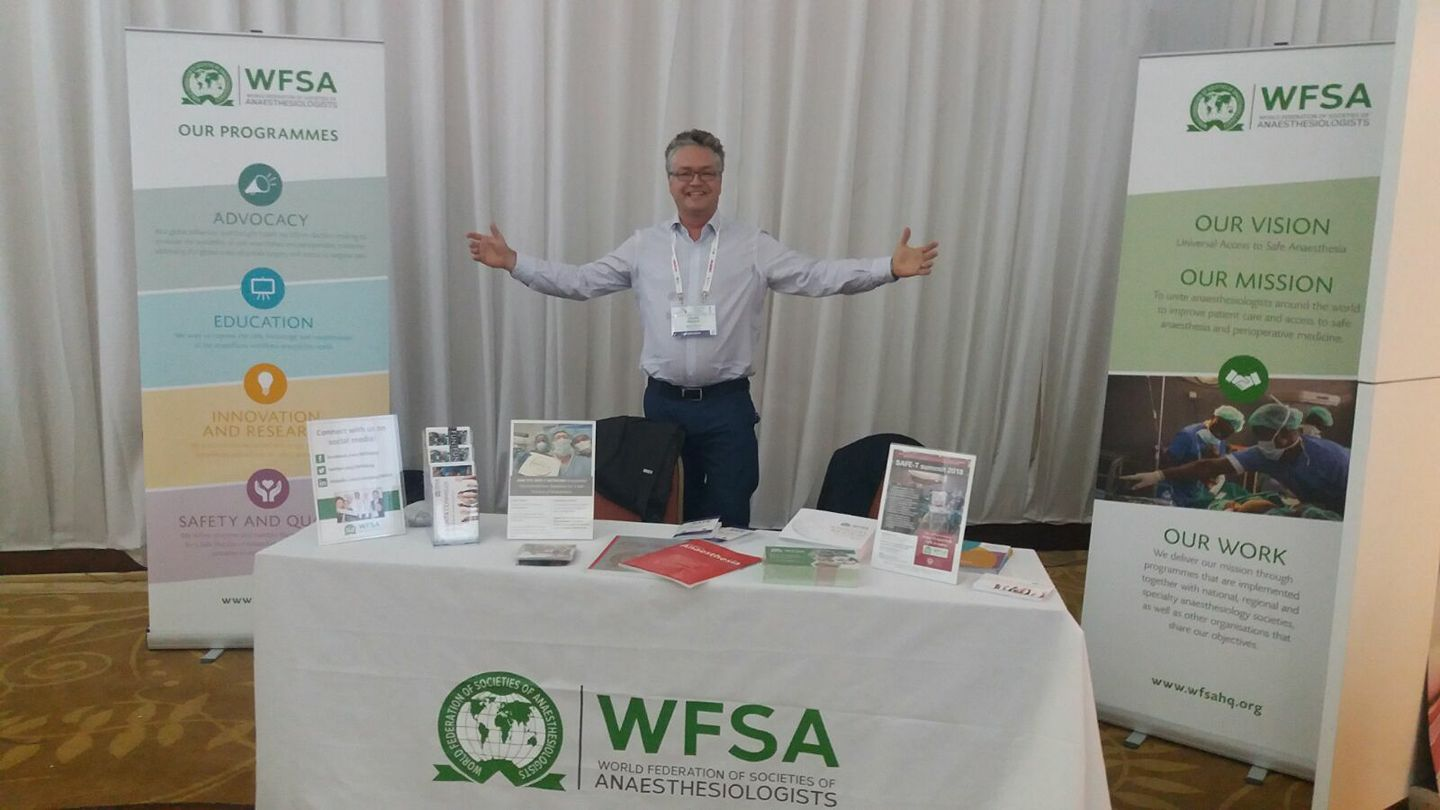Departing Chief Executive Officer, Julian Gore-Booth recounts some of the highlights from his 9-year stewardship of the WFSA
How strange it is to be leaving the WFSA after nearly nine years in post as its first-ever Chief Executive Officer. I vividly remember the day that the then President of the WFSA, David Wilkinson, called me to offer me the role and the excitement with which I accepted the challenge.
Had I been fully aware of the enormity of the task that awaited me I may have hesitated, but it is just as well that I did not because this job has given me great enjoyment and been hugely fulfilling throughout that time. As early as week 2, I found myself in Paraguay at the CLASA (Latin American) Congress, talking animatedly to anaesthesiologists in Spanish about anaesthesia, patient care and global health… Eye-opening stuff for a non-clinician and the beginning of a personal and professional determination to help anaesthesia and anaesthesia professionals come out of the shadows and be better known, better understood and more highly valued globally.
Any success I have been part of is shared with so many wonderful people, but my overriding sense of achievement is to have played a lead role in the transformation of the WFSA from an organisation that was struggling to find relevance, into the truly engaged and impactful global health actor that it is today. Not only in the more obvious fora such as at the World Health Organisation (WHO), but across the spectrum of surgical care and health system strengthening, the WFSA is now a respected leader, convenor, advocate, and educator – and it is hugely rewarding to have been part of that change. For so many of us, 2015 became a standout year with the publication of the Lancet Commission on Global Surgery, the World Bank DCP-3 report on Essential Surgery and the unanimous passing of World Health Assembly Resolution 68.15 on Strengthening Emergency and Essential Surgical Care and Anaesthesia, and we continue to build on the platform that these achievements created. Our own WFSA Position Statement on Universal Health Coverage (UHC) followed, as did the first-ever shared WHO-WFSA International Standards for a Safe Practice of Anaesthesia and later the WFSA Minimum Capnometer Specifications.
The developments of which I am most proud include the growth and impact of the SAFE (Safer Anaesthesia From Education) programme in which the WFSA – and partners such as the UK Association and many other Member Societies – have helped to reach thousands of anaesthesia professionals with valuable training that improves the safety of patients in LMIC. This in turn has helped the WFSA become a key partner of other short training courses such as Vital Anaesthesia Simulation Training (VAST)) and Essential Pain Management (EPM) and has grown the size of the organisation and the impact of what we do. Now we have the WFSA YouTube channel with films that have reached thousands, even millions of views, we have hybrid training courses, we have a Virtual Library, a wealth of Covid-related resources, advocacy resources and an ever-growing presence both online and face-to-face. Equally importantly we have meaningful partnerships with a range of organisations outside our own membership, including our Global Impact Partners – the Laerdal Foundation, the GE Foundation, Johnson & Johnson and Masimo. These and other affiliations are indicative of the extent to which we have transformed what we do, the impact of our work, and how we are perceived.
Alongside these, the Fellowship programme doubled in size to over 50 fellows per year, and the online publications (Anaesthesia Tutorial of the Week (ATOTW) – now with a quiz function – and Update in Anaesthesia (UIA) continued to provide high-quality free education to thousands of anaesthesia professionals around the world. With Baxter and then Fresenius Kabi we have fostered innovation and with a range of impressive speakers and partners, we have convened two patient SAFE-T Summits in London. Perhaps the crowning achievements (and steepest learning curve for me) have been the two World Congresses (WCA) – in 2016 with the Hong Kong Society where thousands gathered face to face, and in 2021 with the Czech Society – where we came together online with over 6,500 participants, hundreds of LMIC scholars in attendance and over 150 countries represented. That the WFSA successfully held its first-ever online elections and its first-ever completely virtual WCA was both a huge step forward and a massive challenge. Covid has been exhausting, for many a tragedy, but it has also been a catalyst for change and a hybrid, more responsive and more inclusive organisation is one of the more positive results of the pandemic.


I also take immense pride in having been involved in the Workforce Survey and mapping that has been pivotal in putting WFSA and Anaesthesia centre stage and which has led on to other work on the surgical indicators and doing all we can to ensure that relevant data is collected and analysed in our much-neglected area of global health – because data drives change. In this and in other areas it has been a bonus to be able to get involved and to have had the opportunity to become a published author in respected medical journals – something I had never imagined I would do!
Looking ahead I see great opportunities with online and hybrid networking and learning, with a biennial WCA and with doing ever more to share resources as a Federation. On a global level, an anaesthesiologist-led but team-based culture will continue to ensure that WFSA can truly help to reach all patients who need safe anaesthesia care and that we can engage meaningfully with health decision-makers around the world. Anaesthesia must be able to demonstrate its importance to achieving SDG3 so that Safe Perioperative Care sits alongside the headline (and well-funded) causes such as HIV, Tuberculosis and Malaria – not that we need to argue that safe anaesthesia is more or less important than any of these, but that we make the case that it is integral to achieving UHC.
One of the first things I worked on at the WFSA was to (re)define our Vision and Mission and to map out the objectives and programmes that would help us achieve these. The revised mission contained three ideas that resonate with me as much today as they did then – Unity, Safety and (for the first time) Access – the WFSA is uniquely well placed to unite anaesthesiologists around the world and if it continues to do this with patient access to safe anaesthesia as its guiding star then it will be as relevant today as it was in 1955 – in fact more so with the growing awareness of the 5 out of 7 people around the world who have yet to realise their right to safe and affordable anaesthesia and surgical care when needed.
I thank WFSA for the opportunity and wish the organisation, its amazing staff, volunteers, committed leadership and all its Member Societies (and their members) well. This job has taken me from meetings with health ministers to hospitals, operating rooms, classrooms, and congress centres, from Geneva to Punta Del Este, from Lagos to Arusha, from Hong Kong to Auckland to Colombo, it has even taken me on stage with my guitar…
My best wishes to my successor, Kristine Stave, who I know will do an amazing job and help lead the WFSA to even greater heights.
Until we meet again.
Julian






